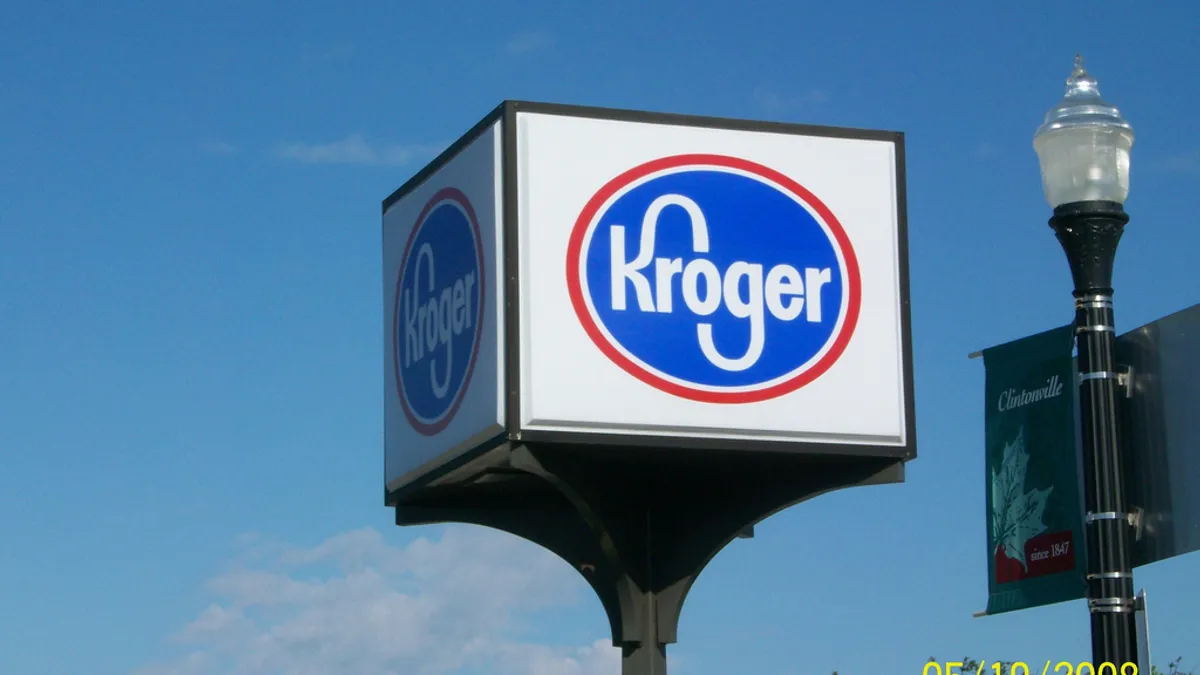Dive Brief:
- Kroger hosted its first natural food innovation summit yesterday in Cincinnati, according to a press release. Going forward, the retailer plans to host a few of these summits every year.
- These summits will help the retailer expand its availability of local and emerging natural brands. Last year, Kroger sold $16 billion worth of natural and organic products.
- Top natural food trends, according to the company, include holistic health, convenience, sustainability food-as-medicine and replacing meals with healthy drinks and snacks.
Dive Insight:
As Kroger has ramped up its selection of natural and organic products in recent years, it poached many customers from Whole Foods and other specialty grocers. Now that Whole Foods is under Amazon’s ownership, Kroger wants to make sure it holds on to the customers it gained, while also improving its reputation in the high-growth natural and organic industry.
Details on the grocer's natural food summits are scant, but they seem to be a way for the company to position itself as a thought leader in the industry and connect with promising brands. Yesterday’s summit was hosted by Joy Bauer, author and nutrition and health expert for the Today Show.
The initiative comes just a few weeks after Kroger launched an online portal where local and niche suppliers can pitch their products directly to company buyers. And it comes a day after the company, at its annual investors meeting, announced a “Restock Kroger” plan aimed at leveraging aggressive data and cost-cutting measures to improve profitability.
The goal, according to Kroger executives who spoke during yesterday’s conference, is to localize and personalize its product selection for shoppers across the country. The nation’s largest grocer wants to feel very small to its customers.
Kroger is also determined to continue outmaneuvering Whole Foods. The natural and organic retailer recently announced it will further centralize its buying operations — a move that will cut costs, but that many say will result in fewer of the niche brands that have given Whole Foods its unique identity in the marketplace.
In a recent press statement, Kroger’s executive vice president of merchandising and procurement, Mike Donnelly, seemed to be taking aim squarely at Whole Foods’ decision.
“Our business has a track record of successfully blending centralized and decentralized decision making to promote local products while also enjoying economies of scale,” he said.
Kroger, which already sources thousands of local products, clearly wants to improve its sourcing operations and be viewed as a destination for unique foods. But whether the company will be able to simultaneously deepen its sourcing and offer niche products at competitive prices remains to be seen.









